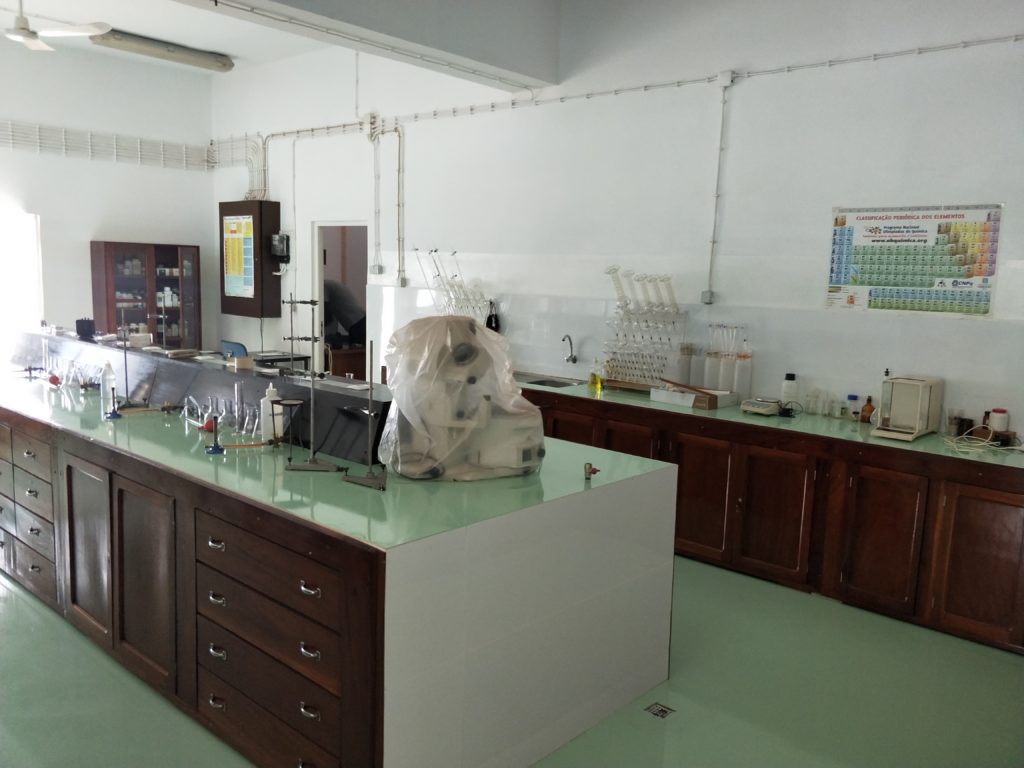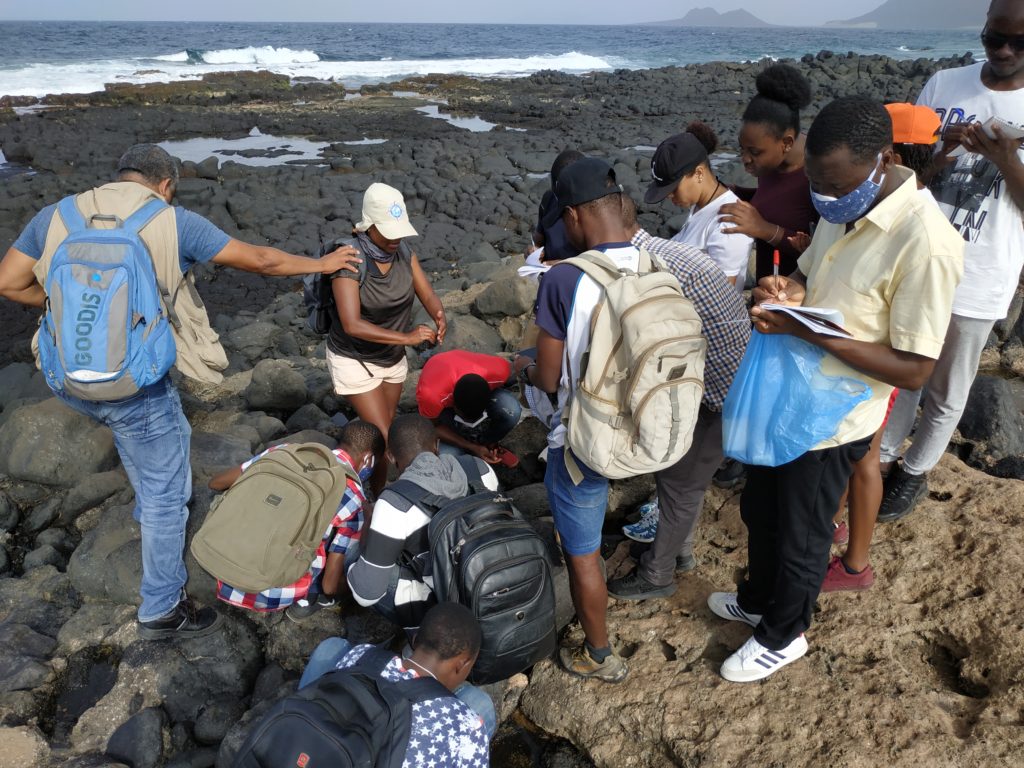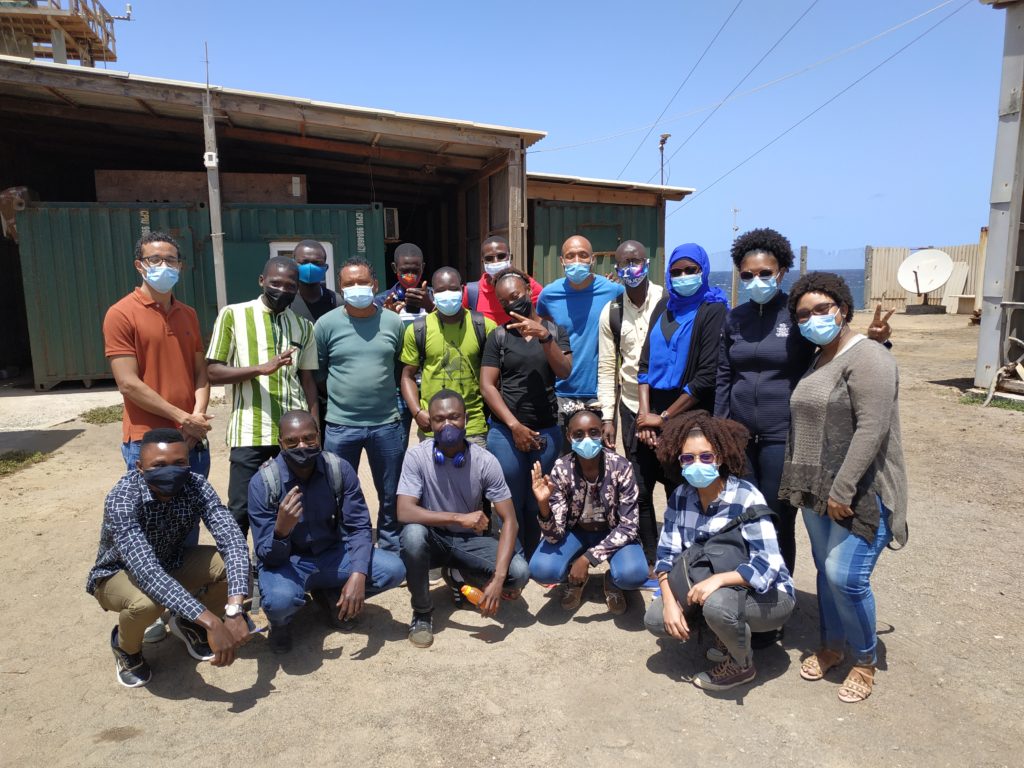WASCAL Cabo Verde Graduate School
Vision
WASCAL Cabo Verde Graduate School seeks to become one of Africa’s leading institutions in training West African early career ocean professionals (ECOPs) who may become potential future decision-makers. Through this, we are actively facilitating evidence-based management of marine ecosystems in West Africa.
Mission
WASCAL Cabo Verde Graduate School’s mission is to provide information and knowledge at the local, national, and regional levels to West African member countries to cope with the adverse impacts of climate change and devise integrated mid and long-term options to build up resilient and productive socio-ecological landscapes. We do this through capacity development and environmental services in West Africa.
Goals and Objectives
The Master Research Program in “Climate Change and Marine Sciences” (MRP-CCMS) will help to increase the critical mass of human capacity in the fields of Climate Change and Marine Sciences and Ocean Management in West Africa. Students will acquire interdisciplinary knowledge and develop technical skills to better understand coastal and open-ocean ecosystems and their interconnectivity within the West African region. With theoretical understanding and applied skills, students will be able to develop solution-oriented projects in marine sciences and management in a climate change context.

Students will be exposed to interdisciplinary and trans-disciplinary approaches in oceanography (biological, physical, chemical and geological), marine ecology, fisheries, coastal management, and planning. Upon completion of their studies, the students are expected to have acquired adequate knowledge and practice about:
- Ocean observation basics (instrument operation, collection of environmental samples and data, time-series analysis)
- Laboratory analyses of key parameters (biological, chemical, and physical measurements)
- Coastal management data collection (marine resources, human use, etc.)
Accessing international databases, processing and analyzing data (with appropriate software packages)
- Mathematical modeling (with appropriate informatics routines)
- Ocean governance (international and regional approaches, societal needs, and wellbeing)
Students will be exposed to interdisciplinary and trans-disciplinary approaches in oceanography (biological, physical, chemical and geological), marine ecology, fisheries, coastal management, and planning. Upon completion of their studies, the students are expected to have acquired adequate knowledge and practice about:
- Ocean observation basics (instrument operation, collection of environmental samples and data, time-series analysis),
- Laboratory analyses of key parameters (biological, chemical, and physical measurements),
- Coastal management data collection (marine resources, human use, etc.),
- Accessing international databases, processing and analyzing data (with appropriate software packages),
- Mathematical modeling (with appropriate informatics routines),
- Ocean governance (international and regional approaches, societal needs, and wellbeing).

Background
In September 2019, the WASCAL Cabo Verde Graduate School was created at the Institute for Engineering and Marine Sciences (ISECMAR – formerly at University of Cabo Verde and later transferred to the Atlantic Technical University). The WASCAL Cabo Verde Graduate School works in close partnership with the GEOMAR Helmholtz Centre for Ocean Research Kiel, the University of Kiel and the Thünen Institute, as German partner institutions and with the Institute of Sea (IMAR) and the Ocean Science Centre Mindelo (OSCM) as Cabo Verdean partner institutions. This consortium is well suited to provide the needed scientific and academic skills in climate and marine sciences as well as management, both on an international and regional level in West Africa.
This program is implemented in Cabo Verde, but students from the 11 WASCAL member countries (Benin, Burkina Faso, Cabo Verde, Côte d’Ivoire, Ghana, Mali, Niger, Nigeria, Senegal, The Gambia and Togo) are eligible to apply for full scholarships. The implementation of the graduate school as well as the scholarships are fully funded by the German Federal Ministry for Education and Research (BMBF). Students from other West African countries are welcomed as well, depending on the availability of additonal funds. In the first batch, for instance, the MAVA foundation funded the participation of one student from Guinea Conakry and in the second batch, 3 students from Cabo Verde, The Gambia and Sierra Leone.
Past Experience and Future Plans

The first edition of the Master Research Program in “Climate Change and Marine Sciences” started in September 2019 with 12 students from 11 West African countries. The francophone and the lusophone students began with 4 months long English language training at the University of Cape Coast (Ghana) and the anglophone with a French language training at the International Centre for Research and Studies of Languages in Togo. In January 2020, all students came together in Cabo Verde and started their courses of the Master Program. Unfortunately, this coincided with the rise of the Corona pandemic. This imposed a challenging situation, as the concept of this Master Program is based on the mobility of international lecturers, which got interrupted completely. With a delay of 3 months, most of the students finished their master’s program at the end of November 2021, and the last 3 students should finish before the end of January 2022. A vast array of research fields on marine sciences were covered during individual thesis research work such as sea-level variation, the marine potential for energy storage, coastal dynamics, seagrass ecology, coastal coverage, mesopelagic organism distribution, and others, in the context of West African marine and coastal region.
A second cohort comprising 14 students from 12 West African countries started in August 2020, with the same path, and by the end of December 2021, they will finish the courses and start developing their thesis research projects. From February to March 2022, these students will embark on an oceanographic cruise onboard a German research vessel. The students will be trained in various technical and scientific aspects in the field of oceanography and will help international scientists to fulfill their research goals. By the end of July, they should finish their master theses.
The third batch arrived in Cabo Verde in December 2021, comprising 11 students from 11 west African countries, and should start at the beginning of January (2022) at the same time they finish the language training online.


Overall, 40 students from 13 West African countries have enrolled in the MRP-CCMS so far, and the gender balance has been improved with each batch, starting with 25% of female students during the first batch and having full parity during the recent (3rd) batch.
The WASCAL Cabo Verde Graduate School is working toward enlarging the network of partnerships and improving the infrastructure (construction of a building and equipment acquisition). This will contribute to the sustainability of the graduate school, assuming that future funding for the next cohorts of master students can be secured. Further, we strive to develop a Doctoral Program in marine sciences that should be implemented in the future.
Watch the film
Contact
For any questions or inquiries, please contact:
- Dr. Corrine Almeida calmeida[AT]uta[DOT]cv
- General wascalcv[AT]uta[DOT]cv
